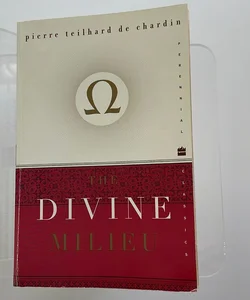Product Details
Category - Non Fiction / Philosophy
Format - Hardcover
Condition - New
Listed - A month ago
Ships From - Georgia
Est. Publication Date - Feb 1971
Seller Description
From Google Books- Christian coherence complete connexions consciousness convergence cosmic sense cosmogenesis cosmos definitely direction discover discovery earth effort elementary elements essay essential everything evolution existence fact faith final force function fundamental future higher higher consciousness hominization human energy hypothesis idea imagine individual inevitably inner less linked living mass material matter ment metamorphosis metaphysics monads monism mysterious mysticism nature noosphere observe Omega Omega point once organization ourselves pantheism passion personal universe pheno phenomenon of spirit philosophical physical plurality possible precisely present problem of evil progress reached reality realm recognize reflexion reveal scholasticism scientific sciousness seems simple sonality soul sphere spirit-matter spiritual energy spiritual evolution stage structure stuff synthesis taking place Teilhard de Chardin tends theory things thinking thought tion transformation true union unity vergence virtue whole About the author (1971) Born in Sarcenat, France, Teilhard de Chardin was the son of a landowner and was educated at a Jesuit school. In 1911 he was ordained a Jesuit priest, but also became interested in geology and paleontology. In 1918 Teilhard de Chardin became professor of geology at the Institut Catholique in Paris. Between 1923 and 1946, he went on paleontological and anthropological expeditions to China and Central Asia, where he helped discover Peking Man in 1929. His work in Cenozoic geology and paleontology earned him widespread recognition, including the French Legion of Honour (1946). Early Man in China, one of his writings from his period as a scientist, is still available. Teilhard de Chardin's lively mind moved beyond science to speculative cosmology. He ranks as an interpreter of naturalistic evolution within a broadened framework of spirituality. During his lifetime his writings were disapproved by the authorities in his order and the church; however, their posthumous publication in the wake of Vatican II catapulted Teilhard into the very center of attention, by intellectuals and philosophers throughout the world. Although his views seem insupportable to many more cautious minds, they have been taken seriously and have stimulated considerable discussion. Teilhard's system on philosophy has been ably epitomized by J. E. Bruns in his review of Phenomenon of Man: ""The story of life is not more than a movement of consciousness veiled by morphology.' These words of the author, referring to consciousness as related to organic structure, express the essential theme of his book.... Evolution has not run its course. Geogenesis led to biogenesis, "which turned out in the end to be nothing else than psychogenesis.... Psychogenesis has led to man. Now it efficaces itself, relieved or absorbed by another and a higher function---the engendering and subsequent development of all the stages of the mind, in one word noogenesis noogenesis.' Noogenesis implies the production of a "superabundance of mind' and looks forward to the ultimate earth, a "universe of conscious substance.' Teilhard envisions mankind, through an ever increasing psychosocial unity, concentrating on the transcendent center of this psychic convergence---God---until it reaches the "Omega point,' the "fulfillment of the spirit of the earth,' a detachment of the mind from its material matrix and an abandonment of its organoplanetary foothold" (Catholic World). Bibliographic information Title Human Energy A Helen and Kurt Wolff Bk Author Pierre Teilhard de Chardin Translated by Pierre Teilhard de Chardin Publisher Harcourt Brace Jovanovich, 1971 Original from the University of California Digitized May 13, 2009 ISBN 0151423903, 9780151423903 Length 191 pages Subjects Philosophy › Movements › Humanism Philosophy / History & Surveys / Medieval Philosophy / Movements / Humanism Social Science / Anthropology / Cultural & Social Export Citation
Tags



















